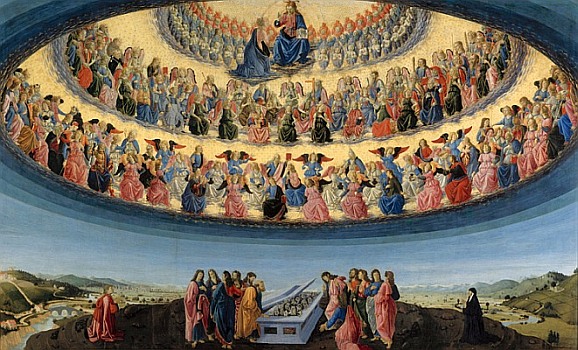The Second Reading in the Roman Catholic Mass for the Feast of the Assumption of Mary (taken from Paul's First Letter to the Corinthians 15) reads:
Christ has been raised from the dead, the first fruits of those who have fallen asleep.
For since death came through man, the resurrection of the dead came also through man. For just as in Adam all die, so too in Christ shall all be brought to life, but each one in proper order. Christ the firstfruits
then, at his coming, those who belong to Christ. Then comes the end,
when he hands over the Kingdom to his God and Father.
The inclusion of this reading is not accidental. It is actually the key to understanding the significance of the Assumption of the Theotokos. For whilst Catholics and Protestants alike may in the main regard this event as something that is peculiar only to the Virgin, it is also, as the First Reading from Revelations 11 says, "a great sign" for all.
A way to understand why this is the case is to look at the Joint Statement by the Anglican-Roman Catholic Commission,
Mary: Grace & Hope in Christ. Paragraph 29 of the document makes clear that Mary is no ordinary biblical figure, for while living within history, She is also at the same time an eschatological figure. Thus, the life of Mary gives us a window into what awaits "those who belong to Christ", as the Second Reading of the Mass says.
The Feast of Mary's Assumption then is highly important for the life of the Christian, for in Her Assumption, the Christian sees what is ultimately hoped for and what is professed in the Nicene Creed - the Resurrection of the Dead. Going further, as the First Letter to the Corinthians says, the sharing in the first fruits by those who belong to Christ is also a sign of the real end of history, when the hopes of all become fulfilled. Seen in this light, this Feast is also important for Christian discipleship, fo rit should give us pause to consider whether we find ourselves longing for the things of this earth as if they gives fulfilment to our deepest desires.
There is thus much to learn and much to gain from a deep and constant reflection on this important day of the Liturgical Calendar.
Labels: bible, discipleship, interfaith, liturgy, resources
